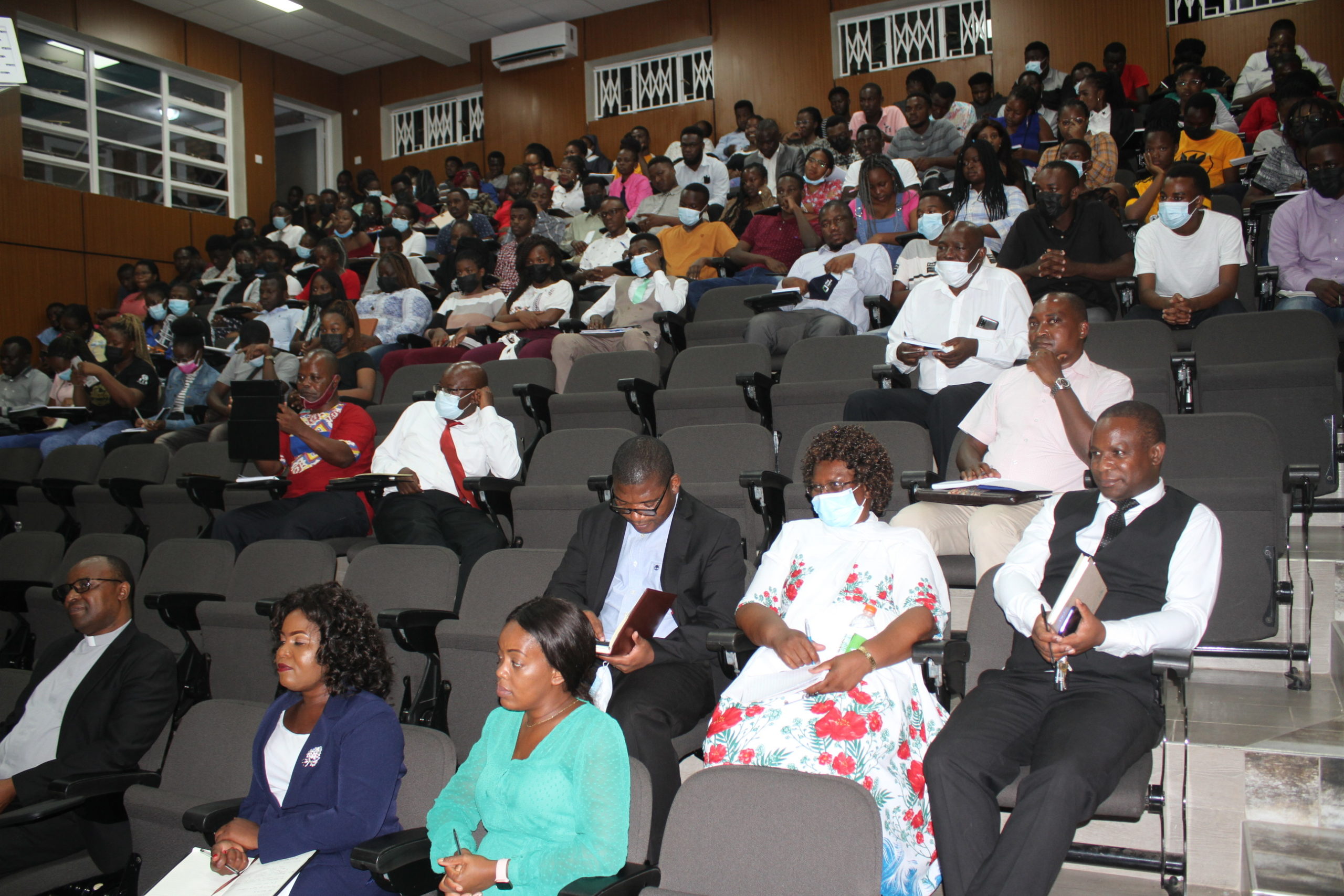MALAWI: Experts warn Govt on Mw2063 Implementation

Patronage of the Conversation listening to the presentation by experts
Luke Bisani
Business expert and an academician from the Catholic University of Malawi (CUNIMA) have warned the Malawi government through the National Planning Commission (NPC) on the implantation of Malawi Vision 2063, arguing that the country is on record at designing good strategies but poor at implementation.
Speaking during CUNIMA Conversation, an initiative that has been introduced at the Catholic University of Malawi to provide a forum for discussing matters of national interest, one of the lecturers at the university, Dr. Gregory Kunyenje said the country’s strategies suffer poor implementation.
Kunyenje said Malawi is often referred to as a country that is good at policy formulation but poor at implementation hence the worry on the implementation of Malawi Vision 2063.
“By now, we need to ask ourselves specific questions: why has Malawi failed to achieve most of its Strategic Plans? We will find that ineffective leadership, politicization and rampant corruption are some of the problems that affected the successful implementation of our strategies,” said Kunyenje.
“We need to ask ourselves: countries that have changed like Ethiopia, what have they focused on? We will find that they implemented agriculture-based economic reforms, supported by the services and construction sectors led to the impressive economic growth of their country” Added Kunyenje.
The academician further urged the government to put in place policies that will deter or minimize corruption instead of dealing with corruption in courts.
Concurring with Kunyenje, Managing Director of Illovo Sugar Lekani Leslie Katandula warned of a strategy without action saying, “It’s useless” and on the action without strategy saying “it’s waste of labour” hence the need for a different approach on how Malawi Vision 2063 will be implemented in the country.
Katandula called for a favorable environment for agricultural productivity and commercialization, industrialization and urbanization if the country is to achieve MIP-1, while looking at the implementation plan for the first ten years of the Malawi 2063 (MIP-1) pillars and enablers that focus on Agricultural Productivity and Commercialization, Industrialization and Urbanization.
“How many people like me believe that Malawians are hardworking people? They wake up in the morning with their holes on their shoulders for their farm work, elsewhere, someone takes a tractor and cultivates on hectares of land. When are we moving from the holes to these machines, if we need to commercialize agriculture sector?” wondered Katandula.
Responding to the observations, Director of Knowledge and Learning at National Planning Commission, Dr. Joseph Nagoli said the country needs mindset change for the successful implementation of the plan. He further urged the academia and the business community to join government efforts in the successful implementation of the vision.
Introduced as a new initiative at the University, CUNIMA Conversations will be providing sessions of face-to-face expert discussions on things of great moment affecting the nation of Malawi.
Animated by luminaries from the academia, industry, and government, the first edition of CUNIMA Conversations focused on MIP-1, the implementation plan for the first ten years of the Malawi 2063 roadmap to an inclusive, wealthy and self-reliant nation with food of thought that centered on the understanding of the academics’ think of the MIP-1, a rigorous test of its business viability and how the National Planning Commission arrived at the strategic choices constituting it.


